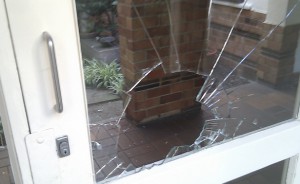 Were you recently the victim of a crime? Whether you experienced property damage or physical violence, you have certain statutory rights regarding notification, participation, compensation, and protection. And even though Minnesota has arguably been ahead of the curve in this area, victims have traditionally been “left behind” by the criminal justice system. For instance, it was only in 1973 that the first battered women’s shelter opened in Saint Paul. The Crime Victims Reparations Board was created by the Minnesota Legislature in 1974 to help victims of violent crime. The Minnesota Crime Victims Bill of Rights was passed in 1983, followed by the 1985 creation of the Office of Crime Victims Ombudsman (OCVO), also the first of such in the nation.
Were you recently the victim of a crime? Whether you experienced property damage or physical violence, you have certain statutory rights regarding notification, participation, compensation, and protection. And even though Minnesota has arguably been ahead of the curve in this area, victims have traditionally been “left behind” by the criminal justice system. For instance, it was only in 1973 that the first battered women’s shelter opened in Saint Paul. The Crime Victims Reparations Board was created by the Minnesota Legislature in 1974 to help victims of violent crime. The Minnesota Crime Victims Bill of Rights was passed in 1983, followed by the 1985 creation of the Office of Crime Victims Ombudsman (OCVO), also the first of such in the nation.
You can read about the options available to crime victims on the Ramsey County Attorney’s webpage. For instance, restitution is the money a judge orders the offender to pay the victim to compensate the victim for out-of-pocket losses that are a direct result of a crime. Eligible expenses may include medical and dental bills, counseling costs, property losses and repairing damaged property. Restitution becomes part of the offender’s sentence or disposition and can be ordered after the offender is either found guilty or pleads guilty, with the amount of dependent on both the actual expenses and the offender’s ability to pay. Keep in mind that costs not related to the crime(s) committed by the offender will not be included in a restitution order, such as payments for physical pain, suffering or emotional trauma. Victims seeking financial compensation for these types of losses may wish to hire an attorney to pursue a personal injury claim in civil court. For more information is available in this Minnesota Restitution Guide brochure and also through the Minnesota Department of Public Safety.
Probably the biggest shortcoming of restitution is that it depends on an actual arrest and conviction. And sad to say, only so many reported crimes lead to an arrest, much less a guilty plea or conviction. If you have experienced a violent crime, the Crime Victim Reparations Board can be of help even without a conviction. (See their form for eligibility.) You will also want to consult the comprehensive Crime Victim Rights Information Guide to see what other options you have.